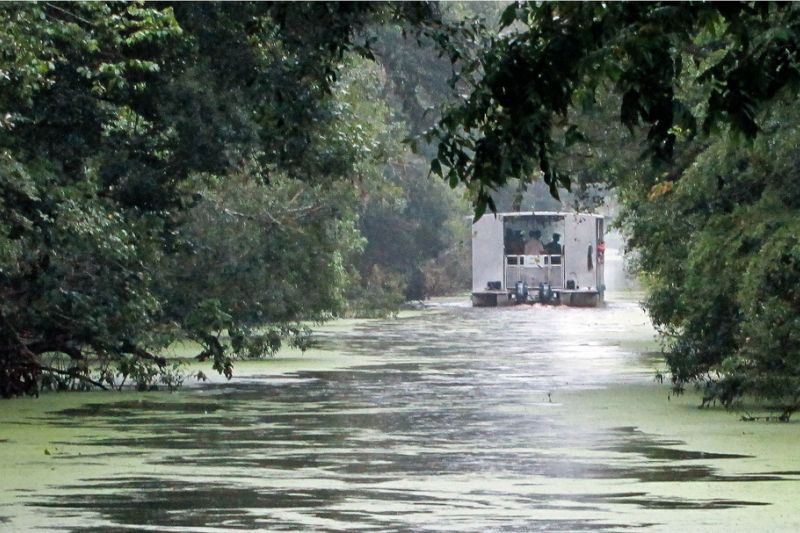“Waters of the U.S.” Rule Could Swamp Small Businesses
Small business owners told the House Small Business Committee that they’ll get swamped by a new proposed “waters of the U.S.” rule, released in April, which would expand EPA’s regulatory reach to smaller bodies of water and make it harder to build things.
The proposed regulation would cover wetlands, intermittent streams, “ephemeral” steams—those that exist for only a short time after a rain or snowmelt—and man-made bodies of water like ditches, ponds, and canals.
Alan Parks, Vice President of Memphis Stone and Grave, told committee members that the proposed rule would give his company permitting fits:
The proposed rule has no clear line or what is ‘in’ and what is ‘out,’ making it very difficult for our industry and other businesses to plan new projects and make hiring decisions. If it is determined development of a site will take too long or cost too much in permitting or mitigation, we won’t move forward.In a letter to EPA last year, Bill Kovacs, Senior Vice President, Environment, Technology and Regulatory Affairs at the U.S. Chamber, wrote about the immense permitting burdens business would face:
Expanding [Clean Water Act] jurisdiction would subject property owners, businesses, and communities to stringent new permitting requirements and use restrictions. The process of obtaining permits and use approvals under the Clean Water Act can be very costly and time-consuming. Historically, obtaining a permit to develop in jurisdictional wetlands can take longer than 12 months and cost hundreds of thousands of dollars.The proposed rule could mean shortages in construction supplies, reports Kent Hoover of the Washington Business Journal:
A decline in production of aggregates from stone, sand or gravel could lead to a shortage of construction aggregate, which would raise the cost of concrete and hot mix asphalt products for road projects, and commercial and residential construction.Tom Woods, owner of Woods Custom Homes in Blue Springs, MO also testified before the committee:
[T]he proposed rule establishes broader definitions of existing regulatory categories, such as tributaries, and regulates new areas that are not jurisdictional under current regulations, such as adjacent non-wetlands, riparian areas, floodplains, and other waters.“For any small business trying to comply with the law, the last thing it needs is a set of new, vague and convoluted definitions that only provide another layer of uncertainty,” Woods added.
The agencies intentionally created overly broad terms so they have the authority to interpret them as they see fit in the field, including stepping in where they may think a state has not gone far enough. These new definitions will include substantial additions, such as a first time inclusion of ditches, conveyances and other water features that may flow, if at all, only after a heavy rainfall.
What’s more, EPA failed to get input from small businesses and communities who would be affected by the regulations as required by the Regulatory Flexibility Act.
“The agencies are not interested in hearing from the regulated community. Their only objective is to move this regulation closer to the finish line. For a rule of this magnitude, the small business voice must be heard and the agencies have failed to provide that platform,” Woods testified.
Hoover noted, “[E]ven committee Democrats criticized the agency for failing to analyze the rule’s small business impact.”


No comments:
Post a Comment